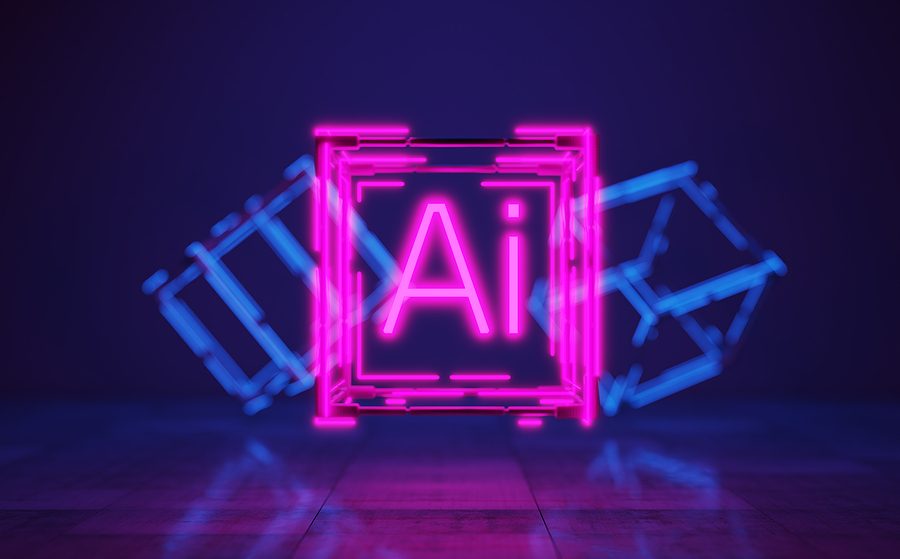In today’s fast-paced business world, companies are constantly looking for ways to increase productivity and efficiency. One of the most promising solutions is the use of artificial intelligence (AI). AI has the potential to revolutionize the way companies operate and can significantly enhance productivity. In this article, we will explore how AI can make companies more productive and the various tools and strategies that can be implemented to achieve this.
The Power of Smart Automation
One of the key ways AI can make companies more productive is through smart automation. AI-powered automation can handle repetitive and time-consuming tasks, freeing up employees to focus on more important and complex tasks. This not only increases productivity but also reduces the risk of human error.
For example, AI-powered chatbots can handle customer inquiries and support, freeing up customer service representatives to handle more complex issues. This not only improves response times but also allows employees to focus on tasks that require human interaction and problem-solving skills.
Another example is the use of AI in data entry and analysis. AI-powered tools can quickly and accurately process large amounts of data, reducing the time and effort required by employees. This allows them to focus on analyzing the data and making informed decisions, rather than spending hours inputting and organizing it.
Productivity Enhancement with AI
AI can also enhance productivity by providing valuable insights and recommendations. By analyzing data and patterns, AI can identify areas for improvement and suggest strategies to increase efficiency and productivity.
For example, AI-powered project management tools can analyze data from past projects and provide recommendations for optimizing workflows and timelines. This not only saves time but also ensures that projects are completed more efficiently and effectively.
AI can also assist with resource allocation and scheduling. By analyzing data on employee availability, workload, and skills, AI can help managers make informed decisions on how to allocate resources and schedule tasks. This can prevent overloading employees and ensure that tasks are assigned to the most suitable team members, ultimately increasing productivity.
AI Productivity Tools
There are a variety of AI productivity tools available that can help companies increase efficiency and productivity. Here are a few examples:
Virtual Assistants
Virtual assistants, such as Amazon’s Alexa or Google Assistant, can help employees manage their tasks and schedules. They can set reminders, schedule meetings, and even provide information and insights to help employees make decisions.
Predictive Analytics
Predictive analytics uses AI to analyze data and make predictions about future outcomes. This can be extremely useful for businesses in making informed decisions and planning for the future. For example, predictive analytics can help companies forecast sales, identify potential risks, and optimize inventory levels.
Chatbots
As mentioned earlier, chatbots can handle customer inquiries and support, freeing up employees to focus on more complex tasks. They can also assist with internal communication and provide employees with quick access to information and resources.
Virtual Collaboration Tools
Virtual collaboration tools, such as Slack or Microsoft Teams, use AI to improve communication and collaboration among team members. They can suggest relevant documents and resources, schedule meetings, and even provide real-time translation for international teams.
Strategies for Implementing AI in the Workplace
While the benefits of AI in the workplace are clear, implementing it can be a daunting task. Here are some strategies to consider when introducing AI into your company:
Start Small
Instead of trying to implement AI across all departments and processes at once, start with a small pilot project. This will allow you to test the technology and its impact on productivity before committing to a larger implementation.
Involve Employees
It’s important to involve employees in the implementation process and address any concerns they may have. This will not only help with the adoption of AI but also ensure that it is used effectively and efficiently.
Provide Training and Support
AI technology is constantly evolving, and it’s important to provide employees with the necessary training and support to use it effectively. This will also help them feel more comfortable and confident in using AI in their daily tasks.
Monitor and Evaluate
It’s important to monitor the impact of AI on productivity and make adjustments as needed. This will help ensure that the technology is being used effectively and that it is providing the desired results.
Real-World Examples of AI in Action
Many companies have already implemented AI in their operations and have seen significant improvements in productivity. Here are a few examples:
Coca-Cola
Coca-Cola uses AI-powered vending machines that analyze data on customer preferences and purchasing patterns to optimize inventory levels and product placement. This has resulted in increased sales and reduced costs for the company.
UPS
UPS uses AI-powered route optimization software to plan and optimize delivery routes for its drivers. This has resulted in significant time and fuel savings, ultimately increasing productivity and reducing costs.
IBM
IBM has implemented AI-powered virtual assistants to assist with internal communication and provide employees with quick access to information and resources. This has improved collaboration and efficiency among team members.
The Future of AI in Productivity
The potential for AI to enhance productivity is vast, and we are only scratching the surface of what is possible. As technology continues to evolve, we can expect to see even more advanced AI tools and strategies being implemented in the workplace.
Some experts predict that AI will eventually be able to handle more complex tasks and decision-making, further increasing productivity and efficiency. However, it’s important to remember that AI is not meant to replace human workers, but rather to enhance their capabilities and allow them to focus on more important and creative tasks.
By implementing smart automation, using AI productivity tools, and following effective strategies, companies can reap the benefits of AI and stay ahead in today’s competitive business landscape. As technology continues to advance, we can expect to see even more innovative ways in which AI can make companies more productive.











